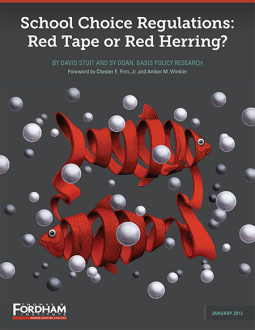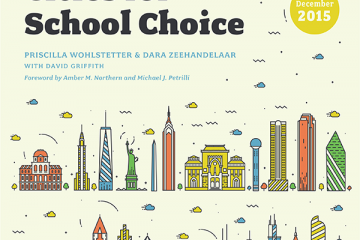Many proponents of private school choice take for granted that schools won’t participate if government asks too much of them, especially if it demands that they be publicly accountable for student achievement. Were such school refusals to be widespread, the programs themselves could not serve many kids. But is this assumption justified?
A new Fordham Institute study provides empirical answers. Do regulations and accountability requirements deter private schools from participating in choice programs? How important are such requirements compared to other factors, such as voucher amounts? Are certain types of regulations stronger deterrents than others? Do certain types schools shy away from regulation more than others?
Among the study’s major findings:
- Regulations that restrict student admissions and schools’ religious practices are more likely to deter school participation than are requirements pertaining to academic standards, testing, and public disclosure of achievement results;
- Curriculum and testing requirements ranked among the least important considerations for school leaders, with just 25 percent citing state assessment rules as very important in their decision to participate or not;
- Only 3 percent of non-participating schools cited governmental regulations as the most important reason to opt out;
- The reasons most cited by school principals for participating in voucher programs were expanding their mission in the community (87 percent), helping voucher-eligible families already enrolled in their schools (75 percent), and aiding needy children in the community (72 percent);
- About one-third of non-participating private schools cited a lack of eligible families in their vicinity as key to their decision to shun the program; and
- Catholic schools are most likely to participate in choice programs, regardless of the regulatory environment.
Watch the replay of the event based on the report:





